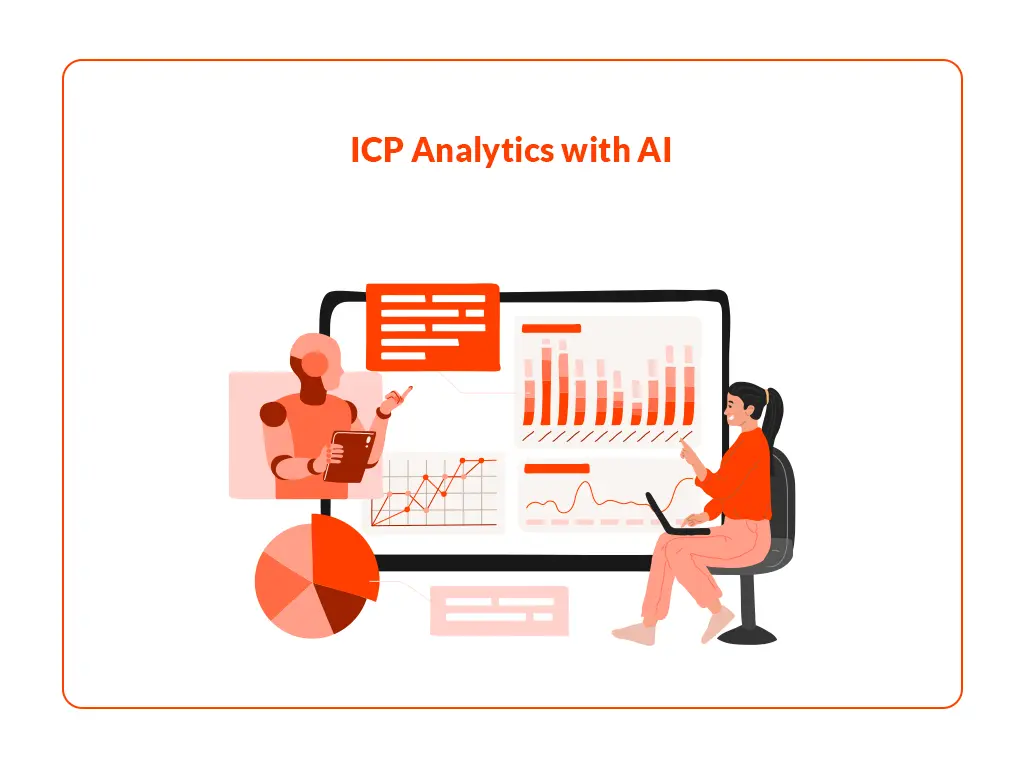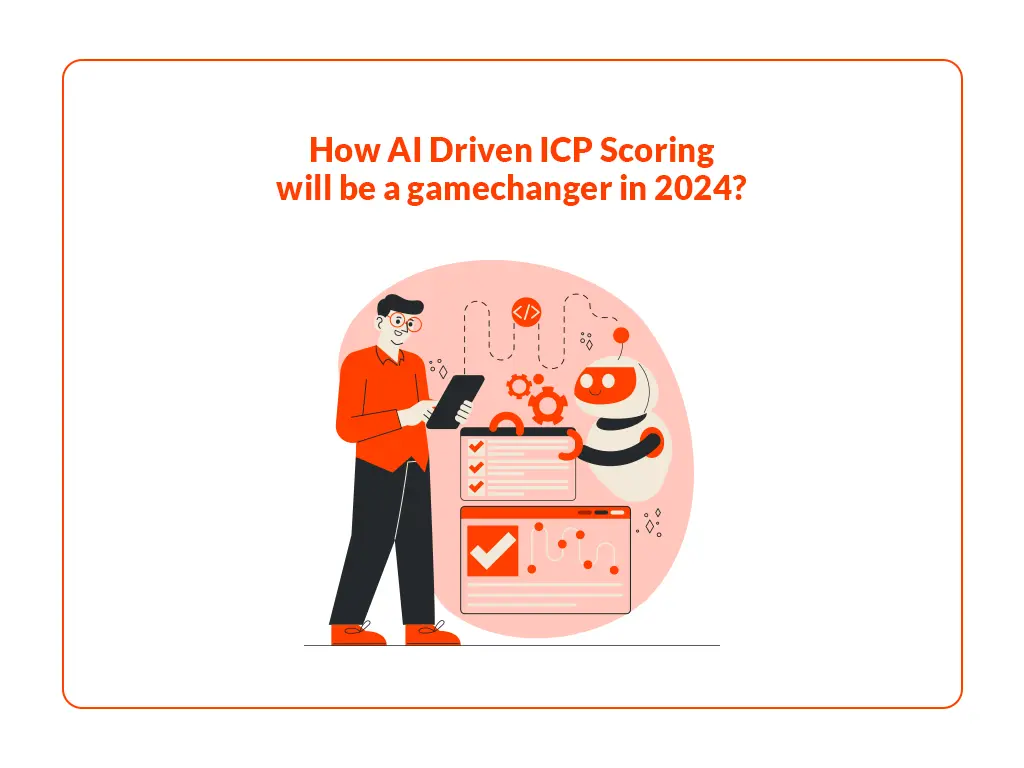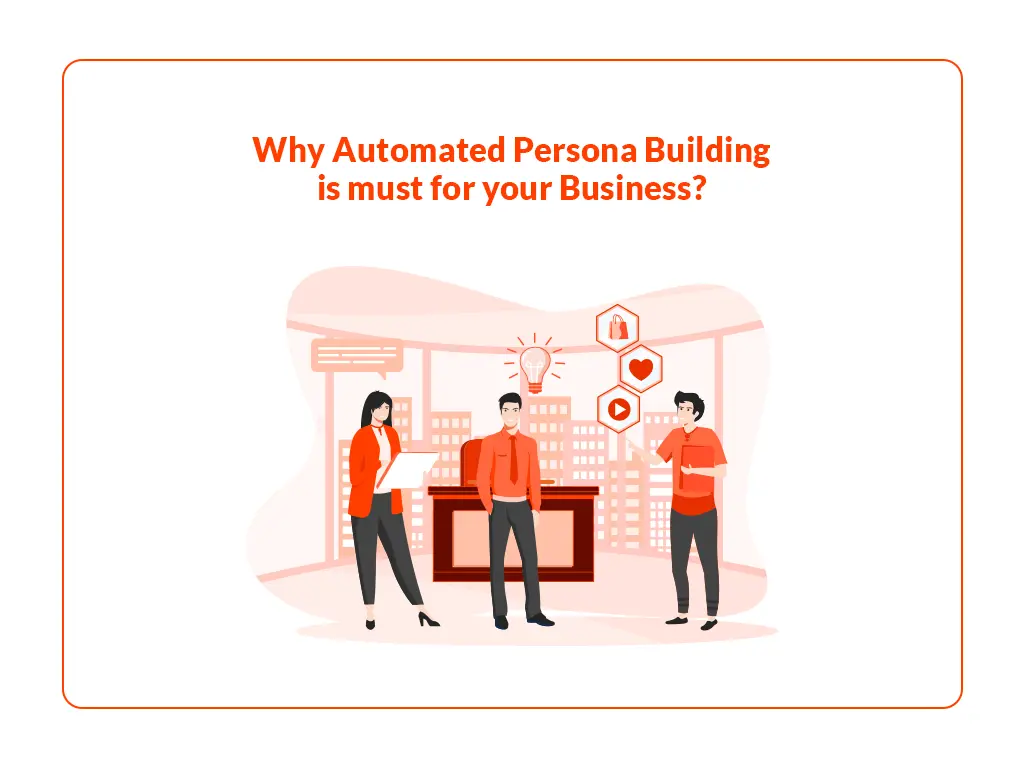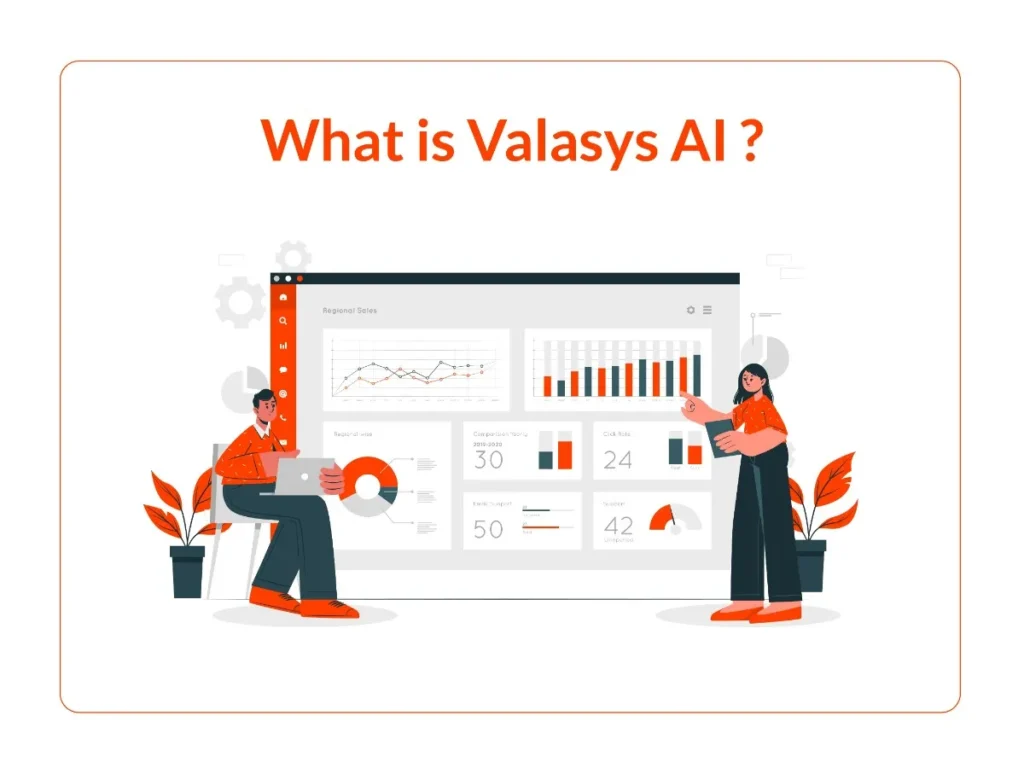ICP Analytics with AI
Does your data have brain? ICP Analytics with AI is powering your data with cognitive abilities to identify patterns & take decisions.

In the fast-evolving landscape of data analytics, a game-changing synergy has emerged – ICP Analytics with AI. Let’s embark on a journey to unravel the depths of this transformative technology, exploring its applications, advantages, and implementation strategies.
Imagine your data as a vast library filled with valuable information. Traditionally, it’s like having countless books neatly stacked, waiting to be explored. Now, introduce ICP Analytics with AI – it’s akin to giving your data a big brain. Suddenly, your library isn’t just organized; it actively understands the nuances, connects the dots, and anticipates the stories readers (your business) want to explore.
It transforms your static data into a dynamic, intelligent resource, making decisions not just informed but visionary. This amalgamation of data & analytics coupled with AI doesn’t just analyze; it imbues your data with a cognitive prowess, turning it into the genius librarian your business needs for unprecedented insights.
What is ICP Analytics with AI?
ICP Analytics with AI, or Intelligent Customer Predictions Analytics with Artificial Intelligence, represents a cutting-edge approach to data analytics. It combines the prowess of artificial intelligence with the precision of customer predictions, offering businesses unparalleled insights into consumer behavior, preferences, and trends. This dynamic fusion enhances decision-making processes and drives strategies tailored to meet customer expectations.
How AI is Used in Data Analytics?
Artificial Intelligence revolutionizes data analytics by introducing advanced algorithms and machine learning models. In ICP Analytics, AI algorithms sift through vast datasets, identifying patterns, correlations, and outliers that may elude traditional analytics methods. Machine learning algorithms adapt and improve over time, enabling businesses to make more accurate predictions, optimize processes, and gain a competitive edge.
How to Implement ICP Analytics with AI?
Implementing this strategic method involves a strategic approach. Begin by defining clear objectives and identifying the key metrics relevant to customer predictions. Integrate AI-powered tools into existing analytics platforms, ensuring seamless collaboration between data scientists and business stakeholders. Continuous monitoring and refinement are essential, allowing the system to adapt to evolving customer behaviors and market trends.
Advantages of ICP Analytics with AI
1. Enhanced Predictive Capabilities:
In the rapidly evolving landscape of business intelligence, the integration of data from customer profiles with AI heralds a paradigm shift, endowing businesses with unprecedented predictive capabilities. By harnessing the prowess of artificial intelligence, organizations can delve into intricate patterns of customer preferences and behaviors. This multifaceted analysis goes beyond traditional methods, offering a nuanced understanding of evolving market dynamics. The result is a strategic advantage, allowing businesses to foresee trends, anticipate shifts in consumer behavior, and engage in proactive decision-making. This fusion emerges as a cornerstone for enterprises seeking a forward-looking approach in navigating the complexities of the modern marketplace.
2. Personalized Customer Experiences:
In the era of hyper-personalization, AI-driven ICP analytics emerges as a transformative force in tailoring customer experiences. The amalgamation of ICP Analytics with AI goes beyond conventional segmentation, offering a granular understanding of individual preferences and behaviors. This level of insight empowers businesses to curate bespoke products, services, and marketing efforts. The result is not merely customization but a profound connection with customers. As organizations pivot towards customer-centric strategies, the synergy of ICP Analytics and AI becomes a linchpin, fostering enduring relationships by aligning offerings with the unique expectations and desires of each individual consumer.
3. Improved Operational Efficiency:
Automation and optimization, catalyzed by AI in the realm of ICP Analytics, mark a transformative journey towards enhanced operational efficiency. This facet of the research explores how AI algorithms streamline processes, mitigating inefficiencies, reducing costs, and minimizing resource wastage. By automating routine tasks and optimizing workflows, businesses can reallocate human resources to more strategic endeavors. The result is a leaner, more agile organizational structure that adapts swiftly to the demands of a dynamic market. The impact on operational efficiency becomes not just a cost-saving measure but a cornerstone for sustainable growth and resilience.
4. Real-time Insights:
The real-time insights facilitated by AI algorithms within the framework of ICP Analytics redefine the tempo of decision-making in contemporary business settings. This facet of the research delves into the capabilities of AI to provide instantaneous data analysis. By eliminating the lag between data generation and actionable insights, businesses can respond with unparalleled agility to market changes and emerging trends. The research scrutinizes the mechanisms through which AI algorithms process vast datasets in real-time, empowering organizations to make informed decisions on the fly. Unleash the catalyst: Fuse AI and ICP analytics for rapid, game-changing choices.
Use Cases of ICP Analytics with AI
1. Efficient Lead Scoring:
Leverage ICP Analytics with AI to refine lead scoring mechanisms, enabling your lead generation team to prioritize prospects more effectively. The AI algorithms analyze past interactions, identifying patterns and behaviors that indicate higher conversion potential. This strategic approach ensures that your team invests time and resources where they matter most.
2. Identify Customer Buying Patterns:
Uncover valuable insights into customer buying behaviors using AI-driven analytics. ICP Analytics with AI goes beyond traditional methods, providing a comprehensive understanding of how leads move through the buying process. By identifying patterns and triggers, your lead generation efforts become more targeted, increasing the likelihood of successful conversions.
3. Trends in Tech Stack:
Stay ahead of the curve by utilizing ICP Analytics with AI to analyze trends in the tech stack preferences of potential leads. Understand the tools and technologies your prospects are inclined towards, enabling your company to align offerings with their preferences. This proactive approach not only enhances lead targeting but also positions your company as a knowledgeable and tech-savvy partner.
4. Online Behavior Analysis:
Harness the power of ICP Analytics with AI to delve into the online behaviors of your leads. Track their digital footprint, understand content consumption patterns, and tailor your outreach based on their preferences. This personalized approach not only improves lead engagement but also fosters a stronger connection by aligning with the prospect’s online journey.
In the realm of lead generation, it becomes a strategic ally, providing actionable insights that go beyond traditional analytics. Incorporate these use cases to boost lead generation, streamline processes, and build meaningful connections in a dynamic digital landscape.
Conclusion
In conclusion, ICP Analytics with AI marks a pivotal shift in the realm of data analytics, bringing unprecedented capabilities to businesses across various sectors. The synergy between intelligent customer predictions and artificial intelligence opens doors to new possibilities, transforming the way organizations approach decision-making and customer interactions. As we navigate this data-driven landscape, the strategic implementation of this technique is poised to redefine success in the ever-evolving business landscape.
In the dynamic world of data, this fusion promises not just insights but a roadmap to sustained growth. Embrace the future – where data meets intelligence, and possibilities are limitless.




